When Mustangs Run
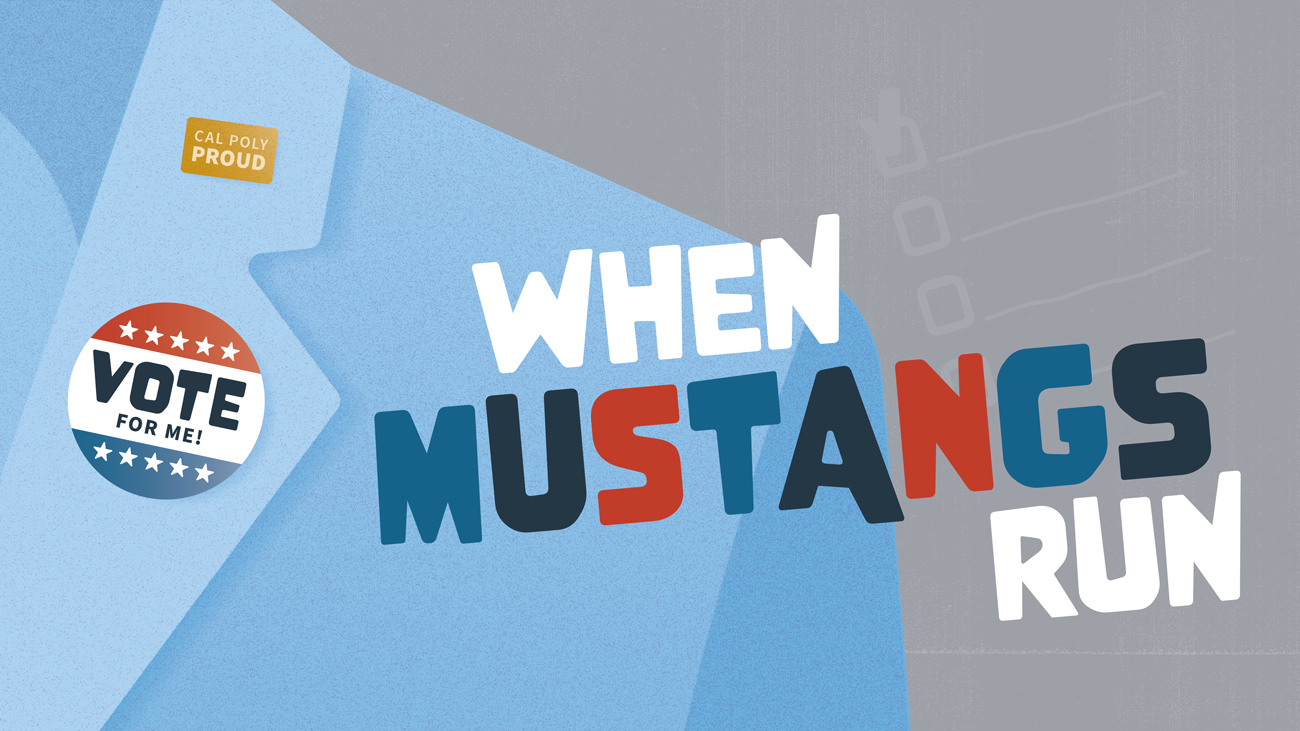
Six alumni who have held a variety of elected offices share what it takes to run, what it means to serve and how their Cal Poly experience paved the way.
In today’s political climate, where polarization and frustration with government are at an all-time high, it often feels like partisanship takes precedence over problem-solving. But what happens when you apply a Learn by Doing approach to the challenges of public office?
As we gear up for another intense election cycle this fall, we spoke with six Cal Poly alumni who have run for and held elected office across California: from local city councils to some of the top offices in the state. They shared what it takes to run, what it means to serve, and how their Cal Poly experience built a foundation in public service.
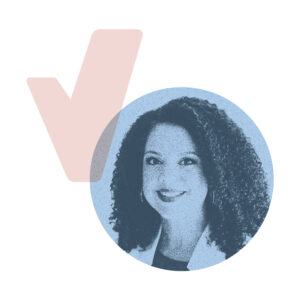 Erica A. Stewart
Erica A. Stewart
Home Economics ‘97 | Mayor, San Luis Obispo
What inspired you to run for office?
I saw local politics starting to mirror national politics with name calling, racism, misogyny and overall disrespectful behavior from leaders in government. I was concerned about our community going in that direction. We have a lot of caring people who have strong opinions, and I felt I could bring different perspectives together in a professional way.
What’s it like to run in an election? What surprised you about the election process?
It was exciting, exhausting and educational. It was great meeting so many people on the campaign trail — constituents, volunteers and other candidates. I learned what was important to thousands of people in our community. I knocked on doors to learn from people and share who I am. I completed numerous endorsement questionnaires and was interviewed by different groups of people for their endorsements. Supporters organized meet and greets at their homes, common areas or local businesses so that their friends could get to know me and learn what I wanted to do in this city as mayor.
The surprise was how hard it is to campaign for the job I was already doing. I had been appointed mayor in October 2021 after being elected as a council member in November 2018. I was juggling my time both doing my job and campaigning for my job while also working a separate 3/4-time job. September through the beginning of November was exhausting! I will be meal prepping and signing up for an exercise plan this summer to train and prep for this November’s election.
What have you enjoyed most about serving the public? What are the biggest challenges? What has surprised you?
It is exciting to be a part of shaping the vision for the city and working with staff to implement this community’s vision. San Luis Obispo cares about making a positive impact on the environment, reducing and preventing homelessness, increasing housing for all levels of incomes, helping local businesses thrive and creating a community where everyone knows and feels they belong. It’s an honor to serve a community that aspires to this vision and puts it into action. We have created the roadmaps to the future through strategic plans that are not in a dusty binder on a shelf, but are living documents with regular updates to the community. Just a few of our recent strategic plans include homelessness response, DEI, economic development and active transportation. There’s a lot of work to do and we can do it together!
What are you most proud to have accomplished in your time as mayor?
I’m proud of our continued work on climate. We have a goal of being carbon neutral by 2035 in San Luis Obispo. The city has invested in 7,000 acres of open space, electrified the majority of city vehicles and heavy equipment, switched out lighting throughout city buildings and parking garages, and created backup redundancies for access to water during emergencies through solar power, battery storage and backup generators.
Since 2018, the city has been an active participant in Community Choice Energy. We advocate for and implement programs to help people access electric vehicles and electrify their housing with financial assistance, and help deliver over 30% of renewable energy to homes and businesses in SLO County.
What parts of your experience at Cal Poly best prepared you for public service or running for office?
Cal Poly’s Learn by Doing style gave me the ability to problem-solve and critically think to create solutions. My experiences as a WOW leader, a director on the ASI Board and as ASI president taught me the importance of bringing together everyone who will be affected by a policy decision and creating the best solution for the most people — as well as communicating broadly and listening to people with whom I agree and disagree. As a student leader, I had to understand and oversee a multimillion-dollar budget, work with university administration and collaborate with an executive team to implement my vision. We also hired and managed student and professional staff as well as collaborated with and learned best practices from student leaders at all of the CSUs. I’ve always thought of Cal Poly’s student government as a microcosm of many larger entities — in fact, much of this is what I do now as mayor of San Luis Obispo.
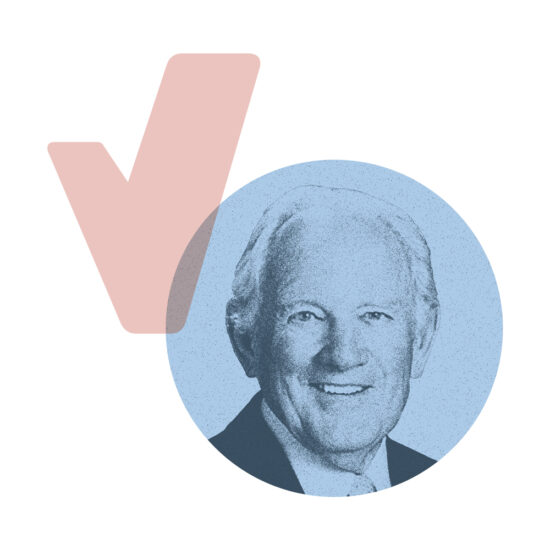 Bruce McPherson
Bruce McPherson
Journalism ‘65 | Santa Cruz County Board of Supervisors; former State Assembly member; former State Senator; former California Secretary of State
What inspired you to run for office?
I see politics as a form of public service. My father, who was very much involved in community service, said something to me that stuck: “We’re fortunate to live in a great place with wonderful people. We need to leave it better than we found it.” I’ve had two, 25-year professional lives: working in news at the Santa Cruz Sentinel and in state and county politics. Each, in its own way, can have an impact on public policy advancement.
Tell me about the process of running for office. What surprised you and what did you learn?
In both of my careers, communicating and working with others has been very rewarding … and challenging. Writing about the issues of the day as a reporter and editor for 25 years gave me great insight into what it might be like to run for political office. A couple of things: I had to outwork the opposition, and needed to realize that a win would not be anything like a landslide. Also, that God gives us two ears and one mouth, so listen to what is on the minds of your constituents. Yes, have your basic views, but be open to what others have to say, and why.
What have you enjoyed most about serving the public? What are the biggest challenges? What has surprised you?
You’re in the mix when you’re in public office. Go into office to solve problems, not create them. Be open to negotiate a compromise in the name of advancing good public policy. I learned that good policy can be accomplished when you earn the respect and trust of your colleagues. Compromise isn’t a dirty word and is necessary when you’re debating 2,000-plus bills a year.
What accomplishments are you most proud of?
I had many satisfactory accomplishments as a California senator and assemblymember, especially in the areas of education, environmental protection, elections and public safety. As California Secretary of State, my office was recognized at the federal level for doing an outstanding job in implementing the federal Help America Vote Act that allowed all voters to vote independently, regardless of any disability.
But my proudest accomplishment in public service occurred after being elected as Santa Cruz County Supervisor in 2012. We had a chance to launch a Community Choice Aggregation (CCA) program for the county, which allows local communities to take more control over their energy resources. Instead, we partnered with Monterey and San Benito counties to launch Monterey Bay Community Power. Today, with the addition of San Luis Obispo and Santa Barbara counties we have the recently-named Central Coast Community Energy (CCCE) agency that will procure clean energy for nearly half a million customers, the largest geographical area of any CCA in California. We’ve removed 320,000 tons of greenhouse emissions from our grid. Our sights are to eliminate fossil fuels from our power portfolio by 2030 — 15 years ahead of California’s goal.
What about your time at Cal Poly helped prepare you for public service?
I can’t overstate the positive learning experience I had at Cal Poly. The Learn by Doing motto served me well. In the journalism department (God bless the late John Healey), we wrote the El Mustang, printed it, delivered it … got it done. It was that way in every class, whether it be economics (Dominc Perello), business law (Dr. Jones), or mathematics (Milo Whitson).
And, oh yeah, you meet the best people, like my wife of 56 years — Mary Bohan, P.E. class of ’66.
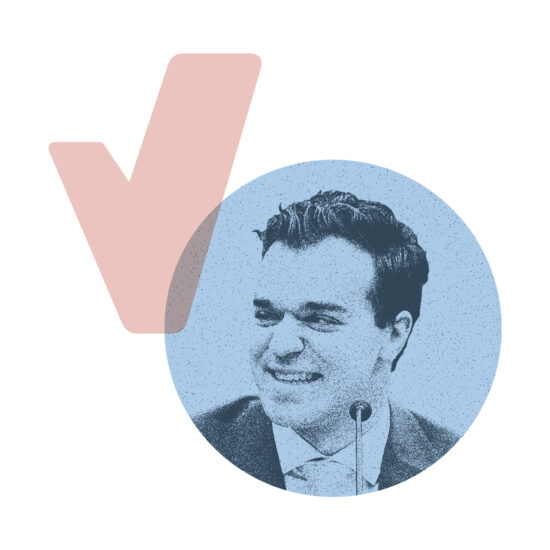 Rob Moore
Rob Moore
Political Science ‘21 | City Council Member, Los Gatos
What inspired you to run for office?
While I was at Cal Poly, I got really involved in local government and worked on a ballot measure to ban fracking in San Luis Obispo County. That really sparked my love for local government. I actually spent time doing some internships in national politics and enjoyed it, but didn’t find the same fulfillment and ability to make change that I found at the local level.
Tell me about the process of running for office. What was it like, what surprised you and what did you learn?
It was really, really hard. Being a working professional makes it a lot harder because I had to pay the bills while running for office. Even once I got there, I got paid $6,000 a year. It’s a thing you do because you love it.
I was surprised by how receptive people were. When I ran for office, I was 24. I’m the youngest person ever elected to my council, and I thought it was important to have my voice in that conversation. I knocked on 7,000 doors in Los Gatos. I thought when I got to the door, people would say, “You’re too young, you need more experience.” And there was definitely some of that, but I think largely people were really encouraged to have somebody who grew up in the community, who wanted to give back to the community, who was passionate and wanted to jump headfirst into these issues.
What do you enjoy most about serving the public? What are some of the biggest challenges you’ve seen in office?
I love every single part of it. I love it every day. It’s the best, most fulfilling thing I’ve ever done in my entire life. While I was running, I was thinking, “I hope I like this. I’m locked in for four years if I don’t.” So I was surprised by just how much I enjoyed it and also how much I felt like I could get stuff done. A lot of the politics I’d been a part of felt like pushing a boulder uphill and not getting a whole lot done, especially at the national level. I really have been able to make a difference here.
What have you been able to accomplish so far in office?
Homelessness is an issue that I pushed for the council to address, and we’ve created some really sophisticated, targeted homeless programs in the year and a half that I’ve been here. The one I’m most proud of that I had the biggest role in was establishing a homeless hotel voucher program. When there are extreme weather events, we now shelter our homeless population in hotels in town and pay for it. It’s been an overwhelming success. I really think that sheltering people is the very bare minimum that we can do to give these people the dignity and help that they need. Now we’re trying to move into case management to get them housed. I’m really excited about that.
What part of your experience at Cal Poly prepared you for public service?
I got involved in student government in a number of different ways, and I ended up becoming the chair of the ASI board of directors. Helping run an organization of 20,000 students is not that dissimilar to running a town with 35,000 residents. I got experience lobbying the administration, interacting with the city of San Luis Obispo, and working within the bureaucracy of ASI.
The political science program was a super hands-on, practical program. I took an excellent class on campaigns from professor Mike Latner. I took World Food Systems and an international relations class from professor Shelly Hurt and learned so much about global issues. And then I had professor Chris Den Hartog as my senior project advisor, and he let me do my senior project on how to run for the Los Gatos town council. It’s a testament to Learn by Doing that my senior project led directly to what I am doing now.
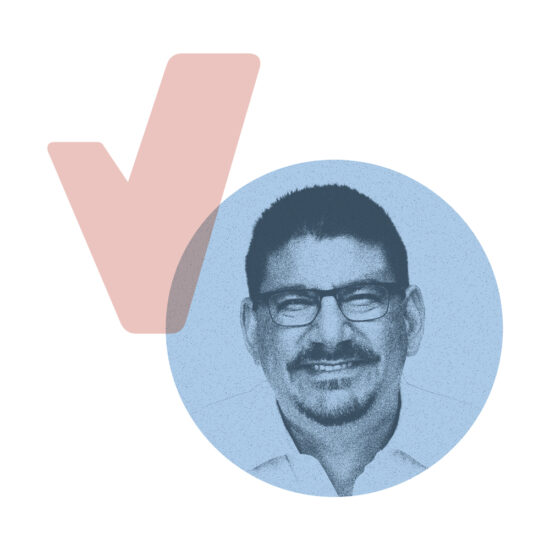 Phil Serna
Phil Serna
Master of City and Regional Planning ‘94 | Sacramento County Board of Supervisors
What inspired you to run for office?
I grew up in a household where elective service was not foreign. My late father was elected to the Sacramento City Council in 1982, and then was elected mayor in 1992 and served until his death in 1999. So I grew up around local service and have a great deal of respect for his experience serving the community. It gave me a lot to think about in terms of my ability to provide some value representing 300,000 people.
What’s it like to run for office? What did you learn?
Probably the most important is the practice of walking door to door — talking to voters on their front porches, really having those conversations with people that I hope to represent and individuals that I would work for. There’s a lot of that, especially in the capital city. The voters are very astute to local and state issues. It takes a lot of time. I knocked on thousands and thousands of doors. It’s probably the most personal part of campaigning. I’ll always remember and cherish those conversations.
What have you enjoyed most about serving the public?
You have to deal with a very wide spectrum of issues. County government is about child welfare and public health, solid waste and recycling, animal care, behavioral health. I think county government, more so than municipal or state government, is probably the least familiar to folks but it’s probably the most important because we do it all. You might know who the mayor is, and you might know your city council person, but it’s really county government and the board of supervisors that literally address everything from birth to death. I really cherish the opportunity to be a local representative in that context, where we have that broad width of service delivery and governance and policy development.
What are you most proud to have accomplished in your time in office?
I’m very proud to say I’ve played a part in an initiative called the Black Child Legacy Campaign. In the first quarter of 2011, just after I was seated as a freshman supervisor, we received a report on data surrounding the circumstance of every child death in the prior year. We had a lot of trend data for two decades, and one of the things that I noted was that African American kids in Sacramento County were dying at two to three times the rate of other groups. The disparity was off the charts.
I put together a blue-ribbon commission to understand why this was happening and what we could do to systematically address the disparity. We established a group including law enforcement, public health, nonprofit leaders, clergy, grandmothers — I mean, anyone who was concerned about this issue. We began to appropriate funds, to date about $30 million. We’ve done everything from peer counseling for new mothers about healthy birth outcomes, to initiatives dedicated to reducing gang violence. We set a goal of reducing the disparity by 20% by 2020. We exceeded that goal and now we’re in the process of developing new goals for 2030. That initiative is measured literally in saved lives and kids being able to grow up healthy with great opportunities in front of them.
What parts of your Cal Poly experience prepared you for the work that you are doing right now?
The world of urban planning, which I studied at Cal Poly, touches on issues of land use, transportation planning, public-private sector partnerships and good governance. And the way my master’s program was structured was just a good working environment where we got to hear each other’s perspectives and have productive, active conversations about growth and policy. It was a healthy environment for learning to think critically, make sound arguments and communicate well. I was able to take that experience and apply it to my desire to serve in this capacity.
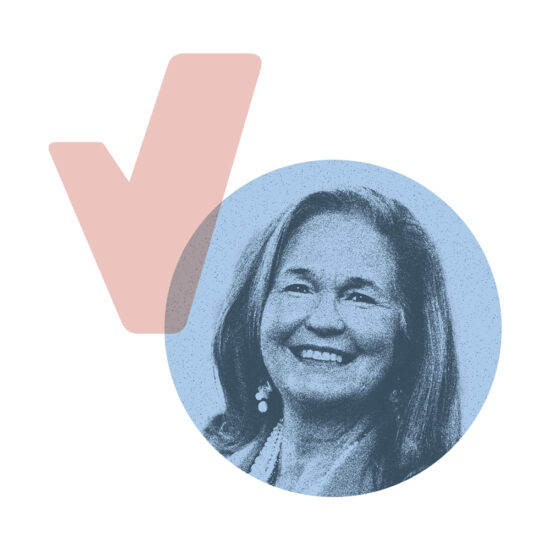 Gail Pellerin
Gail Pellerin
Journalism ‘84 | State Assembly member; former Santa Cruz County Clerk
What inspired you to run for office?
Santa Cruz County had never elected a woman from Santa Cruz County to serve in any state or federal office. Local women’s groups and I set out to change that. In 2022, our incumbent State Assemblymember decided not to run for his last term, so I jumped in the race. Second, my family has been profoundly impacted by mental health, and I wanted to run for office to work on policy in the mental health space and be a face and voice for suicide awareness and prevention. Running for state office also gives me an incredible platform to continue my life’s work to promote voter engagement and improve the voter experience.
What’s it like to run for office? What surprised you about the election process? What did you learn?
As a former county clerk and registrar of voters, I was well aware of the process of running for office. I had run for county clerk four times, and was elected unopposed each time. Running in a contested primary at a state level was much different. Securing endorsements, raising money, getting to know voters in an expansive district, and learning about all the issues impacting the state was a huge undertaking. I learned the importance of focusing on the things I can control. It’s easy to find yourself lost in a tornado of issues and critics. It’s important to practice self-care and give yourself space for growth in challenging times.
What did you enjoy most about serving the public? What are the biggest challenges? What has surprised you?
I love finding ways to resolve issues for my constituents. It’s also very fulfilling to be able to bring home critical financial support to address district needs. I’ve been a public servant for 35 years, so helping people, listening to their concerns and finding resolutions is something I greatly enjoy.
It’s challenging when your constituents are divided on issues, and I also find myself conflicted on which is the right direction to take. I’m surprised by the diversity of issues I need to address, the amount of collaboration needed to get things done, and the impact state decisions can have on people’s lives at a local level.
What are you most proud to have accomplished in your time in office? What do you still want to do that you haven’t been able to do yet?
I’m proud that I was able to pass AB 969 that stopped a rogue board of supervisors in another county from abandoning their voting system and moving to a hand-counted paper ballot system that is not accessible, auditable or accurate. I wrote the bill and the governor signed it into law in the fall of 2023. The bill stopped conspiracy theorists in the region from throwing out state-certified, federally-qualified voting systems. As chair of the Assembly Elections Committee, I continue to carry a number of bills that protect democracy and preserve the integrity of our elections.
We are in a mental health crisis, and there is much to be done to improve access, affordability and quality of mental health care in California. Moreover, there is a huge need for more facilities and workforce to address the behavioral health needs of our residents. As vice chair of the Select Committee on California’s Mental Health Crisis, there is so much more that needs to be done in this area to improve mental health care services in our state.
What parts of your experience at Cal Poly best prepared you for public service or running for office?
I had an incredible experience at Cal Poly. First, I met my lifelong friend and confidant when we were assigned to a Fremont Hall dorm room our freshman year. Forty-four years later, she continues to be a key person in my life. I can’t stress enough the importance of establishing and nourishing these kinds of lifelong friendships.
I often find myself quoting the Cal Poly motto: Learn by Doing! When I first got elected and took office, our state was being pummeled with atmospheric river after atmospheric river. So on day one I had to work with our legislative delegation, the Office of Emergency Services and our federal representatives to obtain a state declaration of an emergency and a federal disaster declaration. We then worked to establish an emergency resource center in the San Lorenzo Valley. I definitely hit the ground running, and learned the processes by doing the work!
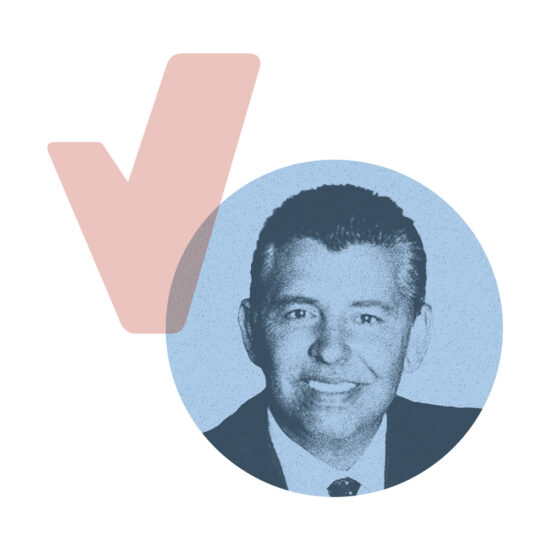 Abel Maldonado
Abel Maldonado
Agricultural Science ‘86-’87 | Former city council member and mayor, Santa Maria; former State Assembly member; former State Senator; former Lieutenant Governor of California
What inspired you to run for office?
I was born and raised in Santa Maria and part of a family that was starting up an agriculture business. I was having a hard time getting the building permit to grow my business. I was very young and impatient. I’d never had any ambition to run for office, but that triggered it. I didn’t understand at the time that our founding fathers had designed government to move really slowly. I learned that down the road.
What’s it like to run for office? What surprised you about the election process, and what did you learn from your various campaigns?
One of the things that I learned was how demanding it is to run for office. If you want to win, you need to be very, very focused on the race, you need to believe in yourself, and you need to tell people why you’re running. And then probably the most important thing is you need to have support from your family. They need to be with you 100%, and that will give you a great advantage toward maybe winning your race.
What did you enjoy most about life in public service? What surprised you?
What I enjoyed the most was helping people and resolving their issues, and I can tell you that I got more satisfaction out of that at the local level because it happened quicker. I could still help people at the state level, it just took a lot longer. I learned that you’ve got to take little bites to eat the whole apple. My biggest surprise was how much money is involved in the process and what a candidate has to do to raise that money. It’s fundraising calls every single day to get your message out. If you don’t have money, your opponent will get their message out for you, and you might not like that message. That happens at the local level, and then you head up to a statewide office where it becomes more partisan, and the political parties expect you to raise money for the party and to fund other folks. It’s just in every aspect of politics. It sucks, but you have to be ready for that.
What are you most proud to have been able to accomplish in office?
I was able to get two constitutional amendments here in California on a statewide ballot. The first was Proposition 14, establishing the top two primary system. I wrote it, pushed to get it on the ballot, and the voters passed it with big numbers. The idea is that the people should get to vote for the two best candidates in the general election, regardless of whether they’re a Democrat or a Republican. An open primary gets you candidates at the end who are more open minded, reasonable and pragmatic, and that’s why it was important for me.
The other was a constitutional amendment that said that if politicians can’t pass a budget, they shouldn’t be paid. That one was also passed by the voters with huge numbers. I did a lot at the local level, but those were two statewide accomplishments that I think have a huge impact.
What parts of your experience at Cal Poly best prepared you for public service?
Being a son of a farm worker, I started in the fields of California and Cal Poly reminded me that my success came from doing things with my own two hands. I learned by doing it. I learned politics by running for city council.
I also think Cal Poly gave me common sense. My politics have never been about partisanship. A pothole is not a Republican or Democratic pothole — it just needs to be filled. That’s how I look at things, and I learned that at Cal Poly.


